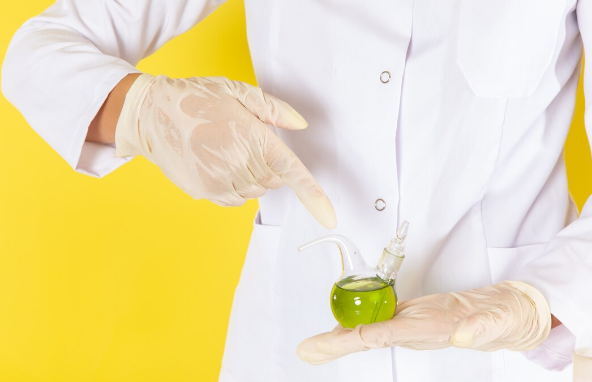How Your Daily Habits Might Be Undermining Teeth Whitening Result

A radiant, confident smile is one of the most noticeable features we present to the world. Teeth whitening has become a popular solution for enhancing that smile, whether through professional treatments or over-the-counter products. Many individuals invest time and resources in brightening their teeth, eager to enjoy the benefits of a youthful and polished appearance.
However, even after a successful whitening treatment, your daily habits can play a significant role in how long the results last. Without mindful care, the effort invested in whitening can be diminished, leaving teeth susceptible to staining and discoloration once again. Understanding the lifestyle factors that impact your smile is essential for maintaining long-lasting results and keeping your teeth healthy.
Understanding Teeth Whitening
Teeth whitening is a cosmetic treatment aimed at brightening your smile by targeting both surface stains and deeper discolouration. Options range from professional, dentist-led procedures to at-home whitening kits. Professional treatments often use stronger bleaching agents and customised methods, offering safer and more effective outcomes while protecting enamel and gums. The durability of whitening results depends on:
- Type of treatment – professional vs at-home methods
- Strength of bleaching agents – higher concentration often lasts longer
- Daily habits – diet, smoking, and oral hygiene influence results
Even the best treatments can fade quickly if poor habits persist. Maintaining good oral care and making healthy choices is vital for long-lasting brightness.

Habits That Can Stain or Discolour Teeth
Certain daily habits are major contributors to staining, even after a whitening procedure. Recognising these habits and modifying them can dramatically improve the longevity of your results.
Key Habits That Cause Staining:
| Habit | Effect on Teeth |
| Coffee & Tea | Deep, persistent staining over time |
| Red Wine | Leaves residual pigments that penetrate enamel |
| Dark-Coloured Foods | Berries, curries, and sauces can leave stains |
| Smoking & Tobacco | Yellowing and surface discoloration |
| Poor Oral Hygiene | Plaque buildup reduces whitening effectiveness |
Consuming staining foods and beverages is not inherently harmful to oral health, but without proper care, their pigments can adhere to tooth enamel, gradually reversing the whitening effects. Similarly, tobacco use not only stains teeth but also increases the risk of gum disease and enamel erosion, which further diminishes whitening outcomes.
How Professional Guidance Helps
Working with a professional ensures that whitening treatments are safe, effective, and tailored to your unique dental profile. A dentist evaluates enamel strength, gum health, and the type of discoloration before recommending the appropriate treatment.
Benefits of Dentist-Supervised Whitening Include:
- Personalised Treatment Plans: Each smile is unique. Dentists adjust whitening strength and duration to suit individual needs.
- Controlled Application: Professional oversight reduces the risk of overexposure and enamel damage.
- Monitoring Sensitivity: Dentists can provide desensitising products if teeth become sensitive during treatment.
- Post-Treatment Care: Guidance on diet, hygiene, and lifestyle habits helps maintain results long-term.
Consulting a dentist in Bradford for whitening ensures that your treatment is both safe and effective, maximising the benefits while minimising potential risks.
Behaviours That Reduce Whitening Longevity
Beyond visible staining, certain habits can undermine whitening results indirectly by affecting enamel integrity and overall dental health.
- Excessive Acidic Food & Drink Consumption: Citrus fruits, sodas, and vinegar-based foods can weaken enamel, making teeth more susceptible to staining.
- Teeth Grinding (Bruxism): The mechanical wear caused by grinding exposes the inner dentin, which is naturally darker than enamel, potentially creating uneven colouring.
- Skipping Regular Dental Check-Ups: Professional cleanings remove plaque and tartar that contribute to discoloration and ensure teeth remain healthy for sustained whitening results.
Even when teeth appear bright, subtle damage from these habits can reduce the overall effectiveness of whitening over time.
The Role of Hydration in Whitening Maintenance
Staying well-hydrated not only benefits your overall health but also plays a crucial role in maintaining whitening results. Water helps wash away food particles, neutralise acids, and reduce the risk of staining pigments settling on enamel. Unlike sugary or acidic drinks, plain water supports enamel health while protecting the brightness of your teeth.
Key Benefits of Drinking Water for Whitening Longevity:
- Rinses pigments away – prevents stains from coffee, tea, or wine from setting.
- Balances oral pH – reducing enamel erosion caused by acids.
- Boosts saliva flow – natural defence against plaque and discolouration.
Tips to Protect Your Whitening Results
Maintaining the results of teeth whitening involves more than occasional brushing or avoiding coffee. Practical daily habits can significantly extend the longevity of your bright smile.
Essential Tips:
- Rinse or Brush After Staining Foods/Drinks: Removing pigments promptly prevents them from adhering to enamel.
- Use a Straw for Beverages: Coffee, tea, and soda can be consumed in a way that limits direct contact with teeth.
- Maintain Regular Oral Hygiene: Brush twice daily with fluoride toothpaste and floss to remove plaque buildup.
- Avoid Tobacco: Smoking or chewing tobacco can quickly reverse whitening results.
- Schedule Touch-Ups: Periodic visits to a teeth whitening Bradford professional help maintain brightness.
Summary Table of Daily Care Tips:
| Tip | Benefit |
| Brush after staining foods | Removes surface pigments before they set |
| Use whitening toothpaste | Helps maintain brightness between treatments |
| Avoid tobacco | Prevents yellowing and maintains enamel integrity |
| Regular dental visits | Professional cleanings and check-ups prolong results |
Incorporating these habits into your routine ensures that teeth whitening treatments remain effective for longer periods, giving you a consistently radiant smile.
Small Lifestyle Changes That Make a Big Difference
Even minor adjustments in daily routines can have a major impact on your whitening results:
- Opt for water after meals instead of sugary or acidic drinks.
- Include crunchy fruits and vegetables like apples and carrots in your diet; they naturally polish teeth.
- Reduce intake of strongly pigmented sauces or use lighter alternatives.
- Consider using a soft-bristled toothbrush to minimise enamel wear.
These small changes complement professional whitening treatments and help preserve both the appearance and health of your teeth.

Conclusion
Teeth whitening is an investment in both appearance and confidence. While professional treatments provide impressive results, daily habits play a critical role in maintaining those outcomes. From dietary choices and oral hygiene practices to avoiding tobacco and scheduling regular dental visits, each decision affects how long your smile stays bright.
Working with a Bradford ensures that whitening treatments are personalised, safe, and optimised for long-lasting results. By combining professional supervision with mindful daily habits, you can enjoy the full benefits of your bright, healthy smile. Relying on Bradford guarantees expert care and guidance, making it easier to protect and enhance your smile for years to come.




